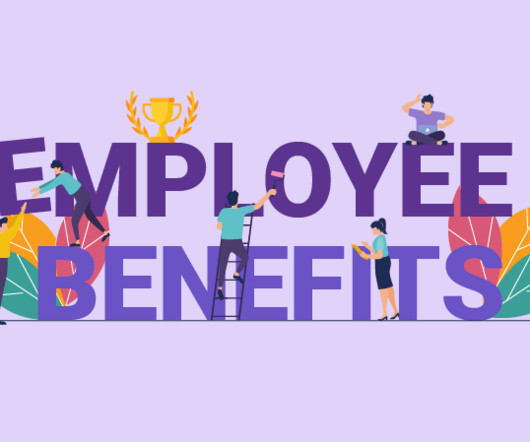Employee Benefits Guide for 2023: What Employers Need To Know
Vantage Circle
SEPTEMBER 23, 2023
Meeting Legal And Ethical Obligations: Certain benefits, such as health insurance, retirement plans, and paid time off, may be required by law in many jurisdictions. Offering good benefits helps companies attract, keep, and inspire employees, leading to better results and a positive work environment. . "The











Let's personalize your content